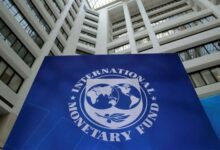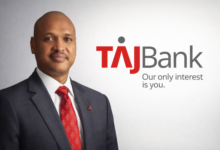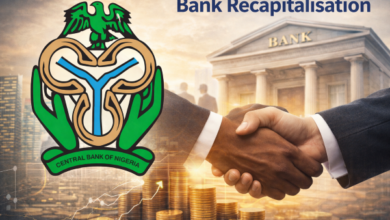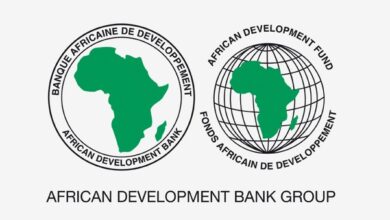AfDB Flags Nigeria’s Slower Growth Path Amid Global Headwinds

Nigeria’s economy is set to expand at a slower pace in the medium term, as external shocks, subdued global demand, and structural vulnerabilities take their toll. According to the African Development Bank’s (AfDB) 2025 African Economic Outlook, Nigeria’s real GDP growth is now projected at 3.2% in 2025 and 3.1% in 2026—a downward revision from earlier estimates.
The report, unveiled at the Bank’s ongoing 2025 Annual Meetings in Abidjan, reflects the fragile nature of Nigeria’s post-pandemic recovery and highlights the broader challenges confronting Africa’s largest economy amid rising uncertainty in global markets.
Why Nigeria’s Growth is Slowing
The AfDB attributes Nigeria’s revised outlook to a mix of external and domestic constraints, including:
- Weakened global demand, particularly from top trading partners such as the United States and China
- Supply chain disruptions affecting industrial output
- Financial market volatility, which has spooked investor confidence and complicated fiscal planning
While the broader West African region is projected to grow at over 5% in 2025, Nigeria—alongside Ghana and Sierra Leone—is expected to trail behind, weighed down by policy misalignments, high debt service burdens, and persistent inflationary pressures.
Africa’s Growth: Cautious Optimism Amid Volatility
Across the continent, the AfDB noted a modest improvement in Africa’s real GDP growth from 3.0% in 2023 to 3.3% in 2024, driven primarily by government spending and household consumption. However, this momentum remains uneven.
“Africa’s growth outlook has been revised downward to 3.9% for 2025 and 4.0% for 2026,” the report noted, citing geopolitical tensions, currency depreciation, and rising debt servicing costs as key risk factors.
Notably, trade tensions, particularly tariff escalations involving the U.S., have had ripple effects on commodity prices, exacerbating revenue challenges for resource-dependent economies like Nigeria.
Bright Spots: Who’s Growing Faster—and Why
Despite the global slowdown, 21 African countries are expected to achieve growth above 5% in 2025. Among them, Ethiopia, Niger, Rwanda, and Senegal are projected to surpass 7% growth—crossing the critical threshold for poverty reduction and sustainable development, according to the Bank.
Regional growth trends, however, vary sharply:
- East Africa is on track to lead with growth near 6%, buoyed by infrastructure investments and regional integration
- Central and North Africa face downward revisions due to conflict and export declines
- Southern Africa, weighed down by structural challenges in South Africa, will see muted recovery
Nigeria: A Growth Giant with Structural Shackles
For Nigeria, the story is one of potential weighed down by underperformance. While it remains a regional powerhouse by population and economic size, structural bottlenecks—from FX instability to high inflation, weak export diversification, and underwhelming industrial productivity—continue to limit its growth ceiling.
“Per capita GDP in Africa remains below global averages,” the report observed, “but long-term resilience is still achievable through reforms and targeted investment.”
The takeaway? Nigeria’s growth story is still unwritten, but the next chapters will require hard reforms, tighter fiscal management, and bold investment in human capital and technology.
BRANDECONOMY TAKEAWAYS
- Downward Growth Revisions Signal Policy Urgency: Nigeria must realign its macroeconomic framework to avoid falling behind its West African peers.
- External Dependencies Remain a Vulnerability: The slowdown in U.S. and Chinese demand reveals Nigeria’s urgent need to diversify its export base beyond oil and gas.
- Inflation, FX, and Debt Are the Watchpoints: The convergence of high inflation, currency depreciation, and ballooning debt service costs calls for a strategic recalibration.
- Africa’s Growth is Fragmented—but Not Hopeless: While challenges remain, high-performing outliers in East and West Africa show that reform-driven economies can still thrive.
Verdict: Nigeria’s economic outlook may be dimmer than expected, but the opportunities for course correction remain wide open—if the leadership is willing to act with boldness, discipline, and strategic foresight.












